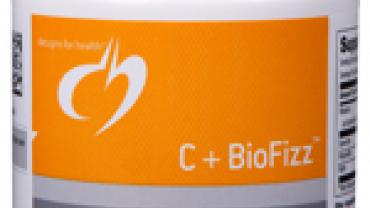
Vitamin C is a powerful antioxidant that may have significant effects on intense exercise since physical activity increases oxidative stress. In several studies vitamin C mitigated the increased oxidative stress caused by exercise. Vitamin C is also involved in the metabolism of histamine prostaglandins and cysteinyl leukotrienes all of which are mediators in the pathogenesis of exercise-induced bronchoconstriction.
A meta-analysis of three studies that looked at pulmonary function demonstrated that vitamin C halved post-exercise FEV1 decline in participants who suffered from exercise-induced bronchoconstriction. FEV1forced expiratory volume at timed intervals of 1 second measures the large-airway obstruction and is the standard test for pulmonary function for assessing if a person suffers from exercise-induced bronchoconstriction. Five other studies also revealed that vitamin C halved the incidence of respiratory symptoms while an additional study showed that it halved the duration of respiratory symptoms in adolescent male swimmers.
The analysis showed that exercise induced a decline in forced expiratory flow 25-75% (FEF25-75) twice as great as the decline in FEV1. While FEV1 measures the large-airway obstruction FEF25-75 measures small-airway obstruction. Therefore FEF25-75 or FEF50 (50%) might provide relevant additional information about the possible effects of vitamin C.
A secondary analysis of a study with 12 participants was carried out by Dr. Harri Hemila of the University of Helsinki in Finland. All of the participants had asthma for approximately 26 years and suffered from exercise-induced bronchoconstriction. In 42% of the participants exercise caused a decline greater than 60% in FEF60. This dramatic decline indicates that the post-exercise level of FEF60 is an important outcome. Vitamin C administration increased the post-exercise FEF60 level in these five participants by 50-150% while no difference was seen between the vitamin C and placebo days in the other seven participants. The increase in post-exercise FEF60 level by vitamin C is a unique finding which demonstrates that vitamin C may have a significant effect on small airways.
Nine randomized trials confirmed the benefits of vitamin C against exercise-induced bronchoconstriction and respiratory symptoms. Due to the safety and low cost of this vitamin it makes sense for physically active people to supplement with vitamin C if they have exercise-induced bronchoconstriction or suffer from respiratory symptoms such as cough or sore throat after exercise.